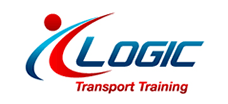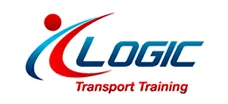Obtain Your Multi Combination Licence in Darwin
Description
This course has been designed with you in mind. We provide you with the skills and experience necessary to operate an MC truck safely within your state or territory and in the Transport and Logistics Industry. Our course consists of the required theory and practical components for driving on our roads; we ensure the best possible training and experience. When you have successfully completed the MC course, you will be issued a Statement of Attainment.
REQUIRED KNOWLEDGE
THE REQUIRED KNOWLEDGE FOR THIS UNIT IS AS FOLLOWS:
- Relevant road rules, regulations, permit and licence requirements of the relevant state/territory road traffic authority,
- Relevant OH&S and environmental procedures and regulations,
- Light rigid vehicle controls, instruments and indicators and their use
- Light rigid vehicle handling procedures,
- Driving hazards and related defensive driving techniques,
- Procedures to be followed in the event of a driving emergency,
- Engine power management and safe driving strategies,
- Efficient driving techniques,
- Pre-operational checks carried out on vehicle and related action,
- Differences between transmission types,
- Map reading and road navigation techniques, including the use of a GPS device where applicable,
- Factors that may cause traffic delays and diversions and related action that can be taken by a driver,
- Workplace driving and operational instructions,
- Principles of stress management when driving a vehicle,
- Causes and effects of fatigue on drivers,
- Factors that increase fatigue-related accidents,
- Fatigue management strategies, including on-road techniques, and
- Lifestyles that promote the effective long-term management of fatigue.
REQUIRED SKILLS
THE REQUIRED SKILLS FOR THIS UNIT ARE:
- Relevant road rules, regulations, permit and licence requirements of the relevant state/territory road traffic authority,
- Relevant OH&S and environmental procedures and regulations,
- Heavy Combination vehicle controls, instruments and indicators and their use
- Heavy Combination vehicle handling procedures,
- Driving hazards and related defensive driving techniques,
- Procedures to be followed in the event of a driving emergency,
- Engine power management and safe driving strategies,
- Efficient driving techniques,
- Pre-operational checks carried out on vehicle and related action,
- Differences between transmission types,
- Map reading and road navigation techniques, including the use of a GPS device where applicable,
- Factors that may cause traffic delays and diversions and related action that can be taken by a driver,
- Workplace driving and operational instructions,
- Principles of stress management when driving a vehicle,
- Causes and effects of fatigue on drivers,
- Factors, which increase fatigue-related accidents,
- Fatigue management strategies, including on-road techniques, and
- Lifestyles that promote the effective long-term management of fatigue.
Call for Pricing
for up to a two-day course (auto or crash box). Own vehicle required. Statement of Attainment supplied.










